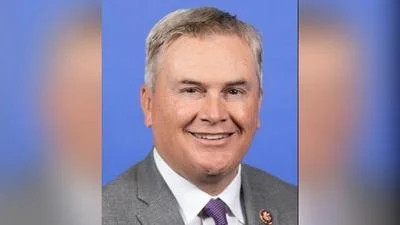Congresswoman Rosa DeLauro (CT-03), Chair of the House Appropriations Committee, delivered the following remarks at the Agriculture, Rural Development, Food and Drug Administration, and Related Agencies Appropriations Subcommittee's markup of its fiscal year 2023 bill:
Thank you so much, Mr. Chairman, and as well to Ranking Member Harris, for your bipartisan efforts on this bill. I want to also thank the subcommittee staff for their work in drafting this bill. I just want to say that the appropriations process is well underway. This is the fourth subcommittee hearing we’ve held today. We will have two more tomorrow and we will wrap up subcommittees next week and move to full committee next week. So we are meeting our deadline of getting all the subcommittee and full committee meetings done in June and we can bring our bills to the floor in July.
About this bill -this bill has the power to ensure every consumer and our farmers, our ranchers, and our rural communities are supported and can access the safe, accessible, and the resilient food supply they deserve. I am proud that this bill builds on the 2022 government spending package with an increase of over $2 billion over last year.
With the investments in that bill, we proved how our government can serve American families trying to put food on the table. We continue that work now. This bill continues that progress and helps ensure 6.2 million low-income women, infants, and children will access safe and healthy foods, including fruits and vegetables, with $6 billion for the WIC program. It provides the 42 million Americans eligible for Supplemental Nutrition Assistance Program (SNAP), the food stamp benefits, the support that they need with over $111 billion in mandatory spending for the food stamp program.
The bill provides $100 million for the storage and distribution of USDA Foods distributed through The Emergency Food Assistance Program (TEFAP) network of emergency feeding organizations, the highest level in the program’s history.
And we are investing in the health and wellbeing of America’s kids and our schools through Child Nutrition programs like school meals. This will fund roughly 5.6 billion school lunches and snacks - that is 5.6 billion times a child in this country will not have to go hungry or wonder where their next meal is coming from. And yes, we will be doing something about extending the waivers of the school meals programs so that kids in our country do not have to go hungry during their summer months or beyond.
Fighting hunger at home, and that is what we are doing, fighting hunger because we know that hunger has increased in the United States, and we the abundance of food we have, no child, no adult should go hungry in the United States of America.
But fighting hunger at home is not enough, so we are providing historic funding for international food assistance programs, including $1.8 billion for Food for Peace grants and $265 million for the McGovern-Dole program.
As we ensure access to nutritious food, we must also ensure our nation’s food supply is safe. As the recent contamination of infant formula further highlighted, our food safety infrastructure must be robust, and our food supply must be safeguarded. And I want to acknowledge the leading role that the Chair, Chairman Bishop, has taken on dealing with the issue of infant formula and the hearings that he’s held so that we can address that because, in fact, no family should have to be worried about the supply of infant formula as well as the safety of that formula.
With over $3.6 billion in discretionary funding for the Food and Drug Administration (FDA), we provide new resources so the FDA can enhance its efforts to keep our food safe, including protecting baby food, responding to food outbreaks, addressing the opioid crisis, monitoring the supply chain, improving inspections, and conducting oversight of domestic and foreign drug manufacturers.
Because we recognize a dangerous gap and the need for more FDA inspection staff, we are ensuring the FDA has the resources and personnel to conduct inspections and thoroughly review infant formula application and manufacturing contracts. This bill builds on the efforts by this Committee, through the House-passed supplemental appropriation and the oversight activities, to address this unacceptable and preventable crisis
In that vein, we provide almost $1.2 billion for food safety and inspection programs to support the programs and personnel that ensure our food is safe, and to provide support for small and very small producers. With market consolidation impacting our food supply - including in the meatpacking, cereal, and infant formula industries - these efforts are more important now than ever.
And rural communities need our support, which is why we are providing over $4.2 billion for rural development programs.
Through rural housing loans and rental assistance, we will help 140,000 families keep a roof over their heads. We are supporting low-income families, older Americans, and historically underserved Native American Tribes access affordable housing.
We continue expanding broadband services to improve the health, economic, and educational opportunities of rural Americans. And as we do so, we will invest in other critical infrastructure, including $1.5 billion for rural water and waste program loans and over $680 million for grants for drinking water and sanitary waste disposal systems.
I am proud of the bill before us because its impact will be profound and will reach every single American. I urge my colleagues to support this legislation, and again thank all those who made it possible.
Source: U.S. Department of HCA




